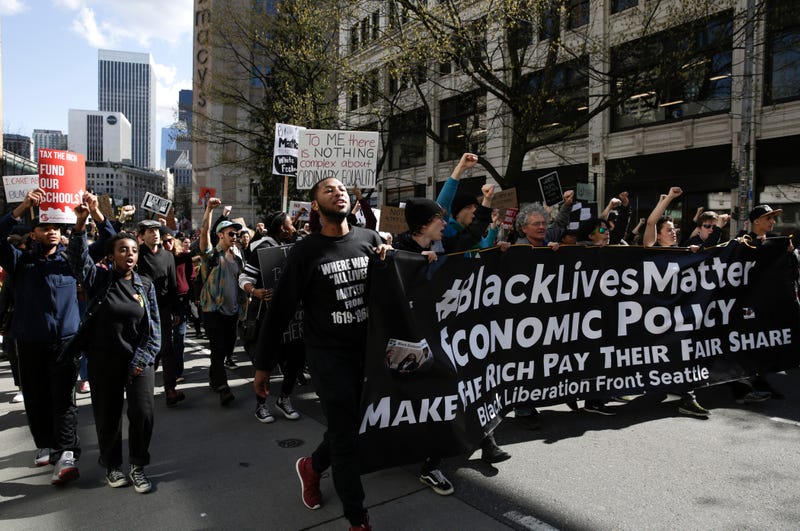
The Journal of Political Philosophy has come under fire for its June issue, which dedicates more than 60 pages to a three-author “symposium” on the Black Lives Matter movement that does not include any actual black voices.
The journal has since apologized for not including the work of black philosophers, but as Inside Higher Ed reports, the incident has drawn attention to the fact that the journal has a poor record of including black scholars and, prior to the symposium issue, did little to include scholarship on issues of race.
Two scholars in African-American studies have circulated open letters criticizing the journal for erasing the experience of black people while covering an issue such as the Movement for Black Lives.
Christopher Lebron is an assistant professor of African-American studies and philosophy at Yale University who wrote, “The idea ‘black lives matter’ is an ethical demand calling for an end to the erasure of black lives and presence by systems of racist power anchored in a history of white supremacy. In our current moment, both the idea and the movement are aligned against the notion that black experiences are irrelevant or negligible for organizing our collective view of civil society.”
Lebron continued, “Try to imagine my distaste when it was brought to my attention that your journal published a philosophical symposium on ‘black lives matter’ with not one philosopher of color represented, without one philosopher of color to convey her or his contextualized sense of a movement that is urgently and justifiably about context. It certainly cannot be said there was no one to ask. I should know. I just published a book on the philosophical foundations of black lives matter.”
Lebron went so far as to research the publication history of the journal, and found that “The Journal of Political Philosophy has not published a single article on the philosophy of race: voting, elections, immigration, global markets and animals have gotten their time in the journal’s sun. But as black Americans, and the philosophers who study racial inequality — a political philosophical problem — have directly engaged one of our era’s most sinister moral and political quandaries, the journal has failed to represent race in its pages. Maybe more damning, so far as I can tell, not one black philosopher has seen her or his work appear in the pages of your respected journal, on race or any other topic.”
Melvin L. Rogers, the Scott Waugh Chair in the Division of the Social Sciences and associate professor of political science and African-American studies at the University of California, Los Angeles, wrote in his letter, “It is profoundly troubling that a symposium named in honor of the movement effectively performs the invisibility and devaluation of black life via the exclusion of scholars of color that the movement would otherwise challenge,” Rogers said. “This is especially upsetting because there are a number of political theorists and philosophers of color positioned to easily say something meaningful about the movement and its connection to substantive normative issues.”
The editors of the journal responded to both letters with the following apology:
“We, the editors, sincerely apologize for the oversight in not including a black author in a symposium explicitly entitled ‘Black Lives Matter.’ We accept the point eloquently and forcefully made by our colleagues that this is an especially grave oversight in light of the specific focus of Black Lives Matter on the extent to which African-Americans have been erased and marginalized from public life.”
They have also vowed to meet and discuss how the symposium was planned in order to consider the lessons learned from what happened, and invite two black scholars to join the editorial board which, although it has nonwhite people, does not contain any blacks.
The journal also vows to work “harder to encourage work from philosophers and political theorists of color as we have done with women and young scholars in the past, and we will revise our editorial guidelines to reflect this commitment.”
Read more at Inside Higher Ed.


